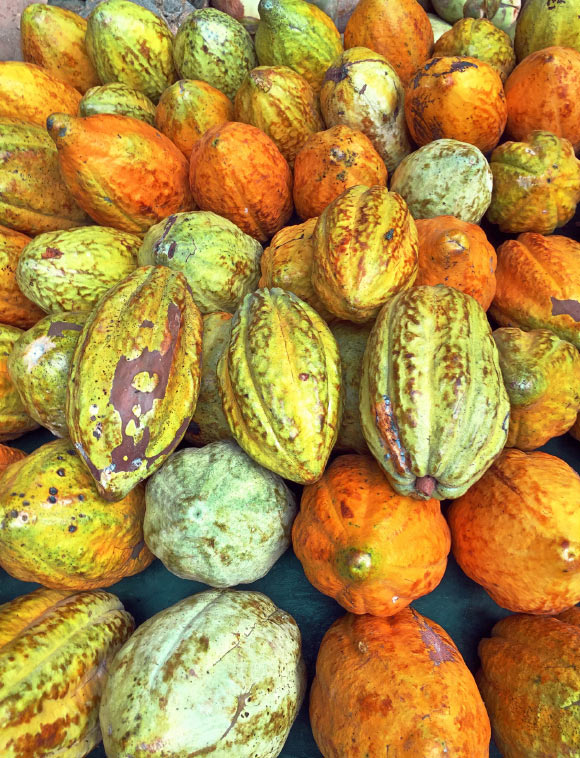When a person has diabetes, their body either doesn’t produce enough insulin or doesn’t process blood sugar properly; at the root of that is the failure of β-cells (beta cells), whose job is to produce the sugar-regulating hormone insulin. A Brigham Young University-led study finds beta cells work better and remain stronger with an increased presence of monomeric cocoa catechins.

According to Rowley IV et al, cocoa compounds have beneficial effects on beta-cell function. Image credit: Pernilla Klockars.
“You probably have to eat a lot of cocoa, and you probably don’t want it to have a lot of sugar in it. It’s the compound in cocoa you’re after,” said Dr. Jeffery Tessem, a researcher at Brigham Young University and corresponding author of the study published in the Journal of Nutritional Biochemistry.
In the study, Dr. Tessem and co-authors from Brigham Young University and Virginia Tech first fed the cocoa compound to animals on a high-fat diet.
The scientists found that by adding it to the high-fat diet, the compound would decrease the level of obesity in the animals and would increase their ability to deal with increased blood glucose levels.
They then dove in and dissected what was happening on the cellular level — specifically, the beta cell level.
That’s when they learned monomeric cocoa catechins enhanced beta cells’ ability to secrete insulin.
“What happens is it’s protecting the cells, it’s increasing their ability to deal with oxidative stress,” Dr. Tessem said.
“These compounds are making the mitochondria in the beta cells stronger, which produces more ATP (a cell’s energy source), which then results in more insulin being released.”
“These results will help us get closer to using these compounds more effectively in foods or supplements to maintain normal blood glucose control and potentially even delay or prevent the onset of type-2 diabetes,” said co-author Dr. Andrew Neilson, of Virginia Tech.
“But rather than stocking up on the sugar-rich chocolate bars at the checkout line, we believe the starting point is to look for ways to take the compound out of cocoa, make more of it and then use it as a potential treatment for current diabetes patients,” the researchers said.
_____
Thomas J. Rowley IV et al. 2017. Monomeric cocoa catechins enhance β-cell function by increasing mitochondrial respiration. Journal of Nutritional Biochemistry 49: 30-41; doi: 10.1016/j.jnutbio.2017.07.015







